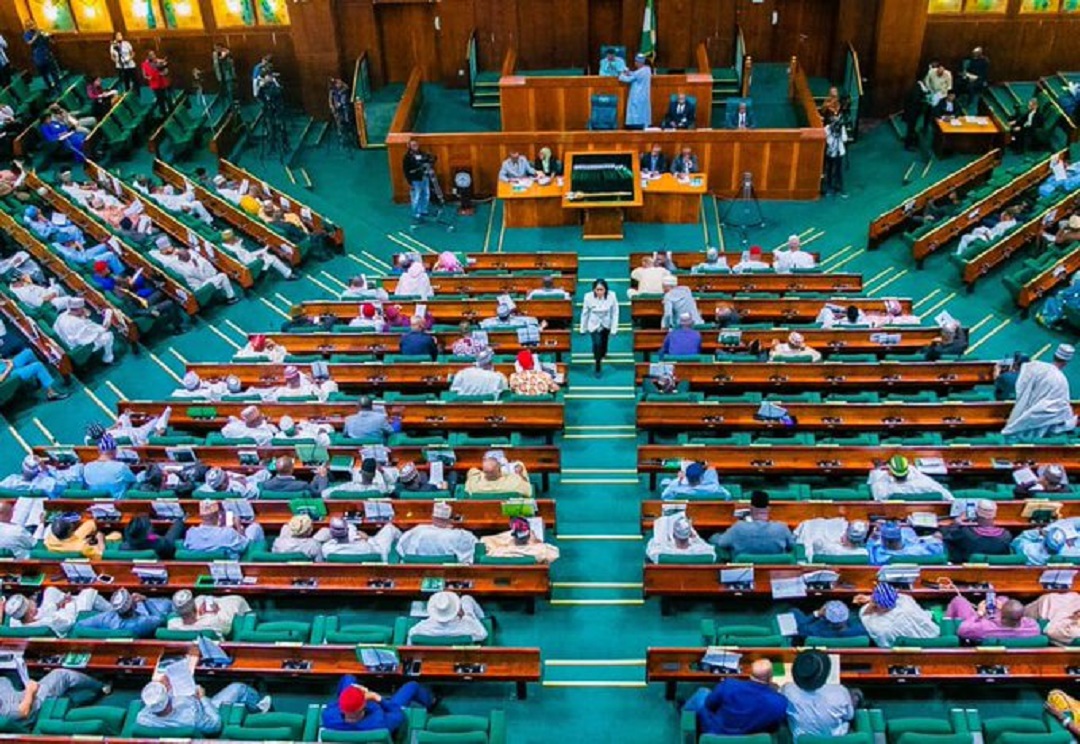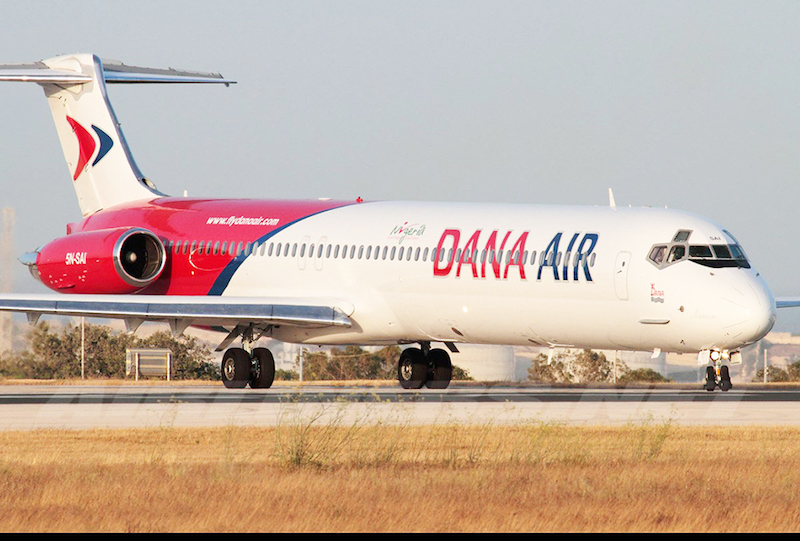News
ECA projects slow global GDP growth in 2024
The Economic Commission for Africa (ECA) says global Gross Domestic Product (GDP) will experience slow growth from 2.7 per cent in 2023 to 2.4 per cent in 2024.
Mr Adam Elhiraika, Director, Macroeconomics and Governance Division of ECA, said this in a statement on the commission’s website on Sunday.
Elhiraika said this was contained in the World Economic Situation and Prospects (WESP) 2024 report that the ECA inaugurated in Addis Ababa, Ethiopia.
According to him, growth is forecast to improve moderately to 2.7 per cent in 2025 but will remain below the pre-pandemic trend growth rate of 3.0 per cent.
Elhiraika explained that tight financial conditions, coupled with a growing risk of geopolitical fragmentation, posed increasing risks to global trade and industrial production.
He said: “while the world economy avoided the worst-case scenario of a recession in 2023, a protracted period of low growth looms large.
” Growth prospects for many developing countries, especially vulnerable and low-income countries, have remained weak, making a full recovery of pandemic losses ever more elusive.
“The global economic slowdown, tighter monetary and fiscal conditions, and high debt sustainability risks will remain a drag on the region’s growth prospects.
“The unfolding climate crisis and extreme weather events will undermine agricultural output and tourism, while geopolitical instability will continue to adversely impact several subregions in Africa, especially the Sahel and North Africa.”
According to him, the world economy proves more resilient than expected in 2023 amid significant monetary tightening and lingering policy uncertainties worldwide .
Elhiraika said this was even as multiple shocks from conflict and climate change, which had an effect on the lives and livelihoods of millions, further jeopardised progress toward sustainable development.
“The report indicates that developing countries face divergent near-term growth prospects.
“The economic growth in Africa is projected to remain weak, increasing from an average of 3.3 per cent in 2023 to 3.5 per cent in 2024.”
“The report says that after surging for two years, global inflation eased in 2023 but remained above the 2010-2019 average.
“Also, global headline inflation fell from 8.1 per cent in 2022, the highest value in almost three decades, to an estimated 5.7 per cent in 2023,” he added.
Meanwhile, Mr Hopestone Chavula, ECA’s Economic Affairs Officer who presented the report, said that while global inflation was ebbing, food price inflation could exacerbate food insecurity and poverty.
Chavula said that in addition to raising interest rates, the major developed country central banks started reducing the assets on their balance sheets, a process known as quantitative tightening, in 2022.
He said they accelerated the pace in 2023 to reduce excess liquidity. Adding that the higher borrowing costs would exacerbate debt sustainability risks for developing countries.
According to him, monetary tightening by these major developed country central banks will have significant spillover effects on developing countries.
“The report says the global investment trends will remain weak. Global investment growth is likely to remain subdued.
“Real gross fixed capital formation grew by an estimated 1.9 per cent in 2023, down from 3.3 per cent in 2022 and far below the average growth rate of 4.0 per cent during the period 2011- 2019.
“International trade is losing steam as a driver of growth. In 2023, global trade growth weakened significantly to an estimated 0.6 per cent, a sharp decline from 5.7 per cent in 2022.
” It is expected to recover to 2.4 per cent in 2024, remaining below the pre-pandemic trend of 3.2 per cent.
” This slowdown is attributed to a slump in merchandise trade. By contrast, trade-in services, particularly tourism and transport, continued to recover,” he said.
According to Chavula, central banks worldwide are expected to continue facing a delicate balancing act and difficult trade-offs in 2024 as they strive to manage inflation, revive growth, and ensure financial stability.
He said that central banks in developing economies would face the additional challenges of growing balance-of payments concerns and debt sustainability risks.
He, therefore, charged the banks to navigate a delicate balance between inflation, growth, and financial stability.
On fiscal space, Chavula said it was shrinking amid higher interest rates and tighter liquidity.
He said industrial policy, which was increasingly seen as crucial for fostering structural changes and supporting a green transition, was being revived and transformed.
” This shift is aimed at fixing market failures and aligning innovation with broader development goals. Innovation policies are also changing, with more ambitious, systemic, and strategic approaches being employed.
“On meeting the SDGs by 2030, the report indicates that strengthening multilateralism will accelerate SDGs progress.
“The world remains vulnerable to disruptive shocks, including a rapidly unfolding climate crisis and escalating conflicts.
“The urgency and imperative of achieving sustainable development underscore that strong global cooperation is needed now more than ever,” he quoted the report as saying.
News
Student loan for all public institutions – NELFUND


The management of the Nigerian Education Loan Fund (NELFUND) has described reports that the student loan programme is exclusive to federal institutions as false and misleading.
NELFUND clarified in a Tuesday statement titled, “Clarification: State Institutions Included in Student Loan Programme” that the narrative pushed across social media is incorrect.
PUNCH Online reports that this new position corroborated what the Managing Director/Chief Executive Officer of the Fund, Akintinde Sawyerr, said on Monday at a Pre-Application Sensitisation Press Conference in Abuja.
He noted that the first batch will be for students in federal schools and the next for state schools.
“The loan application process has been streamlined to ensure easy access for all eligible students in federal tertiary institutions,” he had said.
However, in the new statement, signed by the Media and Public Relations Lead for Nigerian Education Loan Fund, Nasir Ayitogo, NELFUND confirmed clearly that state schools’ students would also benefit.
“State institutions are unequivocally by law included in our student loan programme. The programme is designed to roll out in phases to ensure effective and efficient management of the process.
“The first phase for a start will focus on students attending federal institutions.
“The second phase, which will be launched shortly after the initial rollout, will extend the programme to students at state institutions.
“NELFUND is fully committed to providing financial support to all eligible students, regardless of whether they attend Federal or State tertiary public institutions,” the statement read.
The mission of President Bola Ahmed Tinubu’s Renewed Hope Agenda is to ensure that all desirous students have access to the financial resources necessary to pursue their educational goals and aspirations, NELFUND posited.
PUNCH Online reports that NELFUND is a pivotal financial institution established under the Student Loans Act, 2024.
News
Reps seek waiver of airport, train station tollgate fees for Armed Forces


Members of the House of Representatives have called on the Minister of Aviation and Aerospace Development, Festus Keyamo, to waive tollgate fees in all Nigerian airports for members of the nation’s armed forces.
Keyamo, on May 14, 2024, announced the cancellation of exemptions on all airport access payments for VIPs due to the huge revenue losses they cause to the Federal Government.
Speaking on the motion, Dasuki noted, “Men and women of the armed forces honour our nation with the highest form of service and without reservation; keeping us safe from harm, protecting our wealth and territorial integrity, ensuring safe navigation on our territorial waters, protecting our borders including the Gulf of Guinea, creeks, Sahara Desert and forests, and fighting armed bandits who invade our communities.
“It is important to show gratitude by honouring our brothers and sisters who are voluntarily serving under our flag, putting in their active years to keep our nation safe with some losing their lives, and some becoming disabled from the battlefield amidst other effects.
“Honouring these men and women in uniform, and also encouraging fellow citizens to acknowledge their service to the nation is the right step to take as a way to appreciate the immeasurable sacrifices they make.”
He further justified his call for the exemption of airport tollgate fees for the armed forces on the premise that it is capable of inspiring young ones to enrol in the military to serve the nation.
“Honouring those who fight for our survival, will also inspire our youths to enrol in the military not as a means of escaping the web of unemployment, but as a valuable call to higher service to the nation.
“Members of the armed forces are subjected to paying for access to our airports where they are also expected to protect citizens and foreigners alike whether or not they are on duty and even while they are passengers themselves.
“Their services though remunerated cannot be quantified especially when the risks to them and their dependents are considered, we should not be hesitant to show them in our little way that we see them and we acknowledge their sacrifices,” he added.
He stressed that “Unless we are intentional in showing our appreciation to them by extending privileges like the proposed exemption, our nation would appear to underrate their services and lack knowledge of the value that they bring.”
Before putting the prayers to vote, the motion was amended to include exemptions of payment of toll gates at train stations and seaports.
Following its adoption, the motion was referred to the House Committee on Aviation to ensure compliance.
News
Dana Air staff protest mass sacking, breach in payment of salaries


The staff of Dana Air expression of grievances over alleged non-payment of salaries and undue sack of large numbers of workers, over 500 staff members of Dana Air on Tuesday trooped to the streets, blockinh the entrance of the aviation company in the Oshodi area of Lagos State.
The workers matched in protest against their sacking as well as the refusal of the airlines to pay their April salary.
Dana aircraft was involved in a runway skidding incident last month, a development that prompted the Nigeria Civil Aviation Authority to withdraw its operation licence.
NCAA said it had initiated an in-house compliance assessment of the occurrence taking into account Dana’s track records in related occurrences.
The regulator added that it would ensure a safety audit that will entail a re-inspection of the organisation, procedures, personnel, and aircraft as specified by Part 1.3.3.3 of the Nigeria Civil Aviation Regulations, while the economic audit will critically examine the financial health of the airline to guarantee its capability to sustain safe flight operations.
Barely two weeks after the suspension of Dana Air operations, the aviation company laid off its staff based on claims that their disengagement was in respect of the ongoing audit, by the aviation regulators.
Meanwhile, on Tuesday, the staff, during a protest in front of the company, threatened to explore every mechanism to fight what they called “an injustice.”
The staff members who were armed with placards with inscriptions such as; ‘Give us our money’, ‘A airline owing it staff can’t be safe’, and ‘Systematic thieving’, among others, stated that aside from being unjustly sacked, the airline has refused to pay workers contributory pension as well as their April salary among other entitlements.
Speaking with journalists at the protest ground, the Training Manager of the airline, Magdalene Onyeukwu, noted that the staff members will not relent until the management pays all that is owed.
Onyeukwe, who claimed to have worked with Dana for 15 years, stated that she got her sack letter through a WhatsApp message.
She added that all their access, including official lines, have been deactivated.
She said, “I have been with Dana since 2008; I was part of those who participated in the demo flight that gave Dana its licence; even when there were challenges when salaries were not paid, we remained committed until this issue of runway incursions, which is normal.
“But before we knew it, they started sending us WhatsApp messages saying our services are no longer needed. Who does that? What about our gratuity, pension and even our April salary? This is not possible after 15 years of service?”
Also speaking at the protest ground, an Aviation security supervisor, Eze Chidibere, also complained about the refusal of the company to pay its sacked staff, stressing that this development has started affecting the well-being of staff families, appealing to the management of Dana to urgently pay what is due “even if they won’t be reabsorbed.”
Chidibere further accused Dana of fraudulently deducting staffers’ contributing pensions but refusing to pay the same into their pension accounts.
He said, “We are here to demand our rights, after serving Dana Airlines for several years, they suddenly sacked us all saying that our services are no longer required. But it is on record that Dana airline flew till April before it had an incursion and as I am talking to you, April’s salary has not been paid and my children are at home because I have not been able to pay their fees.
“So many people are in our outstation and couldn’t make it here today because of logistics. If not, this place would have been physically filled by our over 500 staff members because our people are seriously angry.
“Also, if an organisation is sacking its staff, it should pay a one-month salary in lieu because it is also expected that staff should give a one-month notice to the organisation before leaving, but they refused to honour the same rule.
“Dana Airlines has been deducting our money but hasn’t remitted the same to our pension account. This, among others, is our reason for begging Dana to immediately pay us to avert a legal battle.”
The airline is yet to officially respond to the claims of the protesters as at the time of filing this report.
-
Finance4 months ago
Court orders Sen. Victor Umeh to repay N136m bank debt to AMCON
-



 Abuja Update3 months ago
Abuja Update3 months agoUNDP, FG partnership needed to achieve inclusion, equity- Minister
-
Abuja Update2 months ago
Banks drive stock market performance with N147bn gain
-
capital market2 years ago
Rt.briscoe, FBNH, Others halts negative performance of stock market
-
Submission Guidelines5 months ago
CALL FOR SUBMISSIONS: POETRY COLUMN-NND
-



 Health1 month ago
Health1 month agoCapacity training will reduce migration of health workers- NPHCDA
-



 Business4 weeks ago
Business4 weeks agoTingo Group unveils Tingo Electric, Tingo Cola drink at Lagos launch
-
News5 months ago
Oil thieves sponsoring malicious media campaign against Navy – Spokesman








